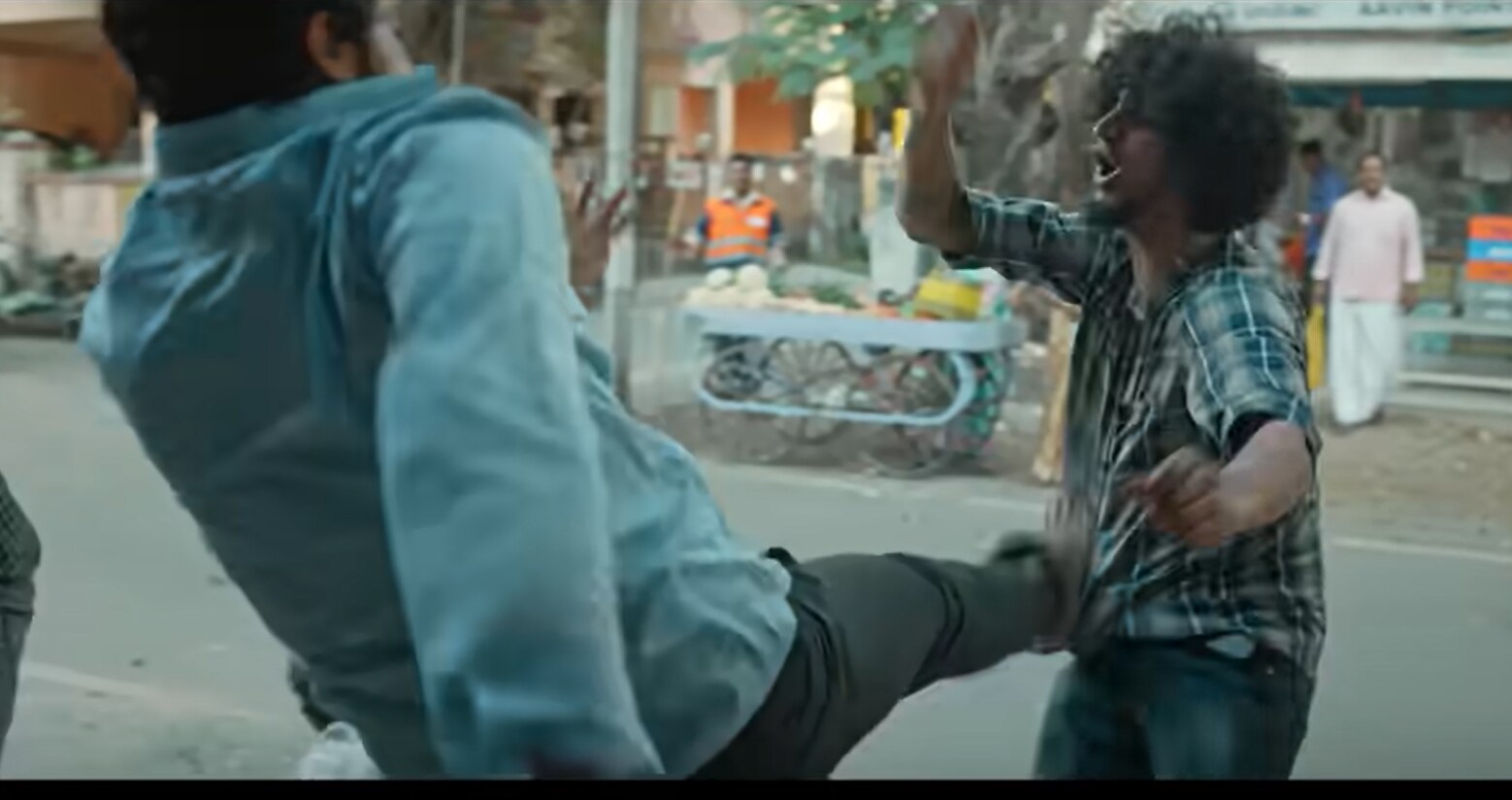
It's plaguing our cities, has been the cause of violence and death and has even spawned a Tamil movie that made one critic applaud the director because he makes a small fight "feel like a glorious Roman battle".
The Delhi High Court and the Supreme Court have both weighed in on this battle. The “social fabric of neighbourhoods is being torn asunder because of fights over this most petty issue”, the SC said in 2019. Earlier this month, the HC asked for a plan “at the earliest”.

Participants in these urban confrontations have used sticks, knives and even guns. In recent years, there have been murders over this issue. In the climax of the aforementioned film, the two male protagonists and their egos speed into a bloody showdown.
Here's a hint: Let's just say I'm glad I don't drive.
When two of us, earnest students of Mumbai's best known driving school, sat behind the wheel for our driving test, we fared appallingly. The school's desperate representative urged the transport department official to give at least one of us a driving licence. Since the other student wasn't even able to start the ignition, I got the licence. I knew I didn't have the required patience-to-aggression ratio required to survive Indian roads and was truly relieved when I misplaced the document. When my teenage daughter is upset with me, she reprimands me for being the mother who ‘can't even' drive.
But the pace at which this latest urban crisis is unravelling convinces me I made the right choice to abandon driving.
You're right, the issue here is parking.
Hindustan Times reported that until the end of October in 2023, the Delhi Police received 7,328 calls reporting “violent disputes” over parking in its neighbourhoods. Police sources told the newspaper this was more than the calls they received in the previous two years. And of these calls, 43% or 3,190 were in the last four months.
“There are 3 vehicles per household in Delhi (2019-2020), and one of the biggest questions that comes up is how and where will these vehicles be parked. For personal vehicles, we need at least three spaces—at your house, at your workplace and at your market. It's a fight for street space,” says Sonal Shah, executive director of non-profit Centre for Sustainable and Equitable Cities. “The other elephant in the room is that we are currently not willing to price parking.” Shah agrees that the problem is growing more unmanageable every day.
Why has it reached this level? One official blames our utter lack of foresight. Delhi Development Authority's former commissioner (planning), AK Jain told The Print website that the capital's parking situation was a mess, because “nobody visualised that this could become such a big problem”.
The fights are often between neighbours, and usually over parking for privately owned cars.
Like the family that returned from a trip to find their parking spot was gone. They questioned the neighbour who had occupied the spot, tempers rose, a fight ensued and a senior citizen was critically injured. He died in the hospital. Or the 29-year-old TV technician who was murdered by his flatmates over a parking space for his motorcycle. India has the highest number of two-wheelers in the world, with this category comprising 75% of all vehicles on the road. Bullets flew in all directions in a Delhi courthouse as two groups of lawyers fought over parking spots. Two siblings were shot at recently, when they didn't move their parked car fast enough. Parking is truly a death sport.
There are innumerable stories such as these playing out on the choked roads and sidewalks of our urban neighbourhoods every day. Implementing reforms is hard because if you want neighbourhoods to follow parking rules, you have to be ready to answer their questions about other street encroachments, illegal construction and misuse of residential property for commercial use.
Shah looks at it from the policy POV. “It's not just a supply problem, it's a management problem,” she says. Our travel choices, she points out, are shaped by the availability of transit options and by the availability and price of parking.
When Shah's organisation conducted a parking study around Green Park Metro Station in Delhi a couple of years ago, they found that 70% of metro users walked to and from the station. Despite this, 80% of road space was captured by motor vehicles. Roads had “insufficient, discontinuous, broken or non-existent footpaths”, the study found. Many were blocked by parked vehicles. Shah believes that the best place to start managing parking is within the vicinity of metro stations.

A scene from the trailer of the film Parking. (Source: Youtube)
Ramkumar Balakrishnan, the director who made the Tamil film Parking, got the idea from a different kind of parking incident. A neighbour who lived down the road had an odd request: Can you park your car in front of my house? Balakrishnan told Film Companion that he later realised the man was even ready to keep an eye on his car if it were parked in front of his house, as he didn't want someone else parking there. That's when the director realised how seriously people guarded their parking spots. It's only a matter of time before the parking wars close in.
Priya Ramani is a Bengaluru-based journalist and is on the editorial board of Article-14.com.
The views expressed here are those of the author and do not necessarily represent the views of NDTV Profit or its editorial team.
Essential Business Intelligence, Continuous LIVE TV, Sharp Market Insights, Practical Personal Finance Advice and Latest Stories — On NDTV Profit.




















